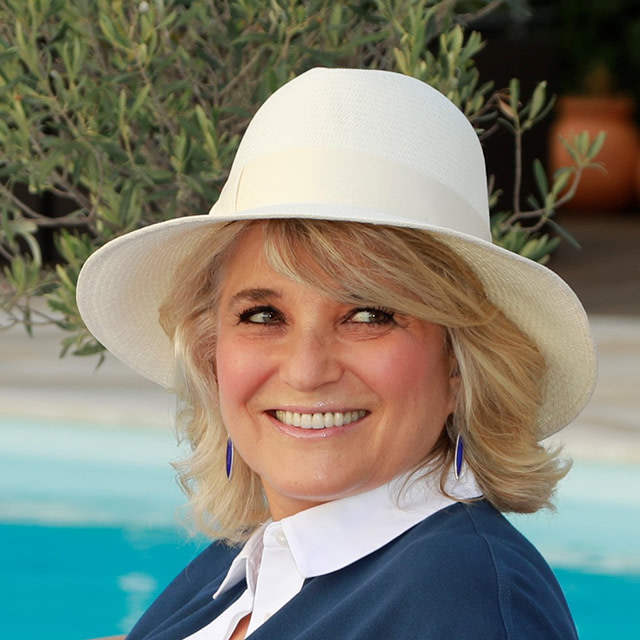Do you sometimes feel like you’re living paycheck to paycheck and don’t know where your money went by the end of the month? You work really hard to make money but then spend most of it on just…living your life?
Regardless of how high your income is, what really matters is how much you make relative to how much you spend.
In other words, pay attention to how much money you keep every month.
If you’re earning $3k and spending $2k a month, you’d probably be less stressed out about your finances than if you’re making $8k but spending $9k a month.
I recently spoke with a professional single-mom in this situation. She works multiple jobs and takes home about $5,400 per month, which is well above the median household income.
Yet, she spends about $6k a month.
This is leaving her with no savings and a growing mountain of credit card debt.
Since she’s struggling to pay her bills and have been late with payments, she has seen the interest rates on the credit card debt jump to as high as 29%. Even worse, the financial stress has put a strain on health. She started experiencing migraines, anxiety and insomnia.
If any of this sounds familiar to you, you’re not alone.
Many people who have seemingly good income suffer from lack of “intentional money management”. Yes, situations like an unexpected job loss, medical bills or other financial emergencies happen.
But for the most part, it’s how you manage your cash flow – incoming and out-coming – that will make a difference in your financial life.
Here are some simple suggestions to help you track your money so that you get back control over your finances:
1. Evaluate Your Income. How much money do you have coming in?
It may seem like obvious knowledge yet it’s not the case for many people.
You may have several sources of income – from part-time jobs, freelancing, your mate’s income, annuities’ payments, etc.
So, get really clear what you total monthly income is. Using one centralized account for your in-coming cash flow could be helpful.
Then you can decide how much money you want to keep every month (aka “pay yourself first.”)
The difference is what you can now allocate to various lifestyle expenses.
2. Figure out where your money is currently going.
You can’t improve what you don’t measure.
Take a look at the last 3 months of your bank and credit card statements and categorize each of your expenses in a spreadsheet (you can create your own or find money tracking spreadsheets online).
That will cover everything purchased by automatic withdrawal, checks, debit or credit cards.
While you can’t see what you bought in cash, you can at least see how much cash you withdrew.
By looking at 3 months’ spending, you can get an average of monthly variable expenses like transportation/gas, groceries, and entertainment that aren’t always the same every month and monthly fixed expenses like utilities (electricity, water, internet, etc.), rent/mortgage, medical insurance premium, gym membership, etc.
You’ll also capture quarterly or annual expenses like some property taxes, home insurance, personal tax returns, etc.
However, that still leaves some spending that may happen once or twice a year like a summer vacation or holiday gifts.
You can divide what you spend on those annual expenses by 12 to convert them into a monthly amount.
For example, if you tend to spend about $4,800 a year on a family vacation, you would say that you spend $400 a month on vacations.
There are sites like mint.com and yodlee.com that can help you to continue tracking your spending online for free.
This is especially useful if you have lots of different accounts since they consolidate everything on one site. You can even get set up to be alerted by email or text message if you start spending more than you budgeted for in any particular category.
3. Find where you can cut back.
Start with your fixed expenses and think about how you might be able to spend less on each one.
Shop around for lower cost insurance, cable, internet, and/or phone service.
Are you paying for insurance coverage, services, memberships, or subscriptions you don’t really need?
Can you be more efficient with your energy and water use to cut down on utility bills?
Have you taken advantage of coupons or warehouse clubs for groceries?
Can you refinance or negotiate down the interest rates on your debt?
And if you really need additional money, you might even want to consider working a part-time job, moving into a lower rent apartment, getting a roommate, or renting a room in your home.
Always be mindful of where you can cut your unnecessary expenses if you want to save more.
To Your Health, Wealth and freedom!

For more resources on various financial topics, check this page on my website:
For additional real-time support, join my private Facebook group:
WEALTH BUILDING FOR POWERFUL WOMEN
Free Resources:
DOWNLOAD MY FREE WEALTH PLANNER
P.S. If you like to see a big picture for your financial life and want to start upgrading it beyond “survival”, you would enjoy and benefit from my new Wealth Planner Companion Training.
It’s a step-by-step, easy to follow online program and will only take you 30 mins at most to watch each of the 6 training videos! You’ll get lifetime access to the videos, audios and transcripts for this program. And I made it a complete “no-brainer” for you at only $48! Your return on this investment could be at least 100X of this amount or as high as you allow it to be!


